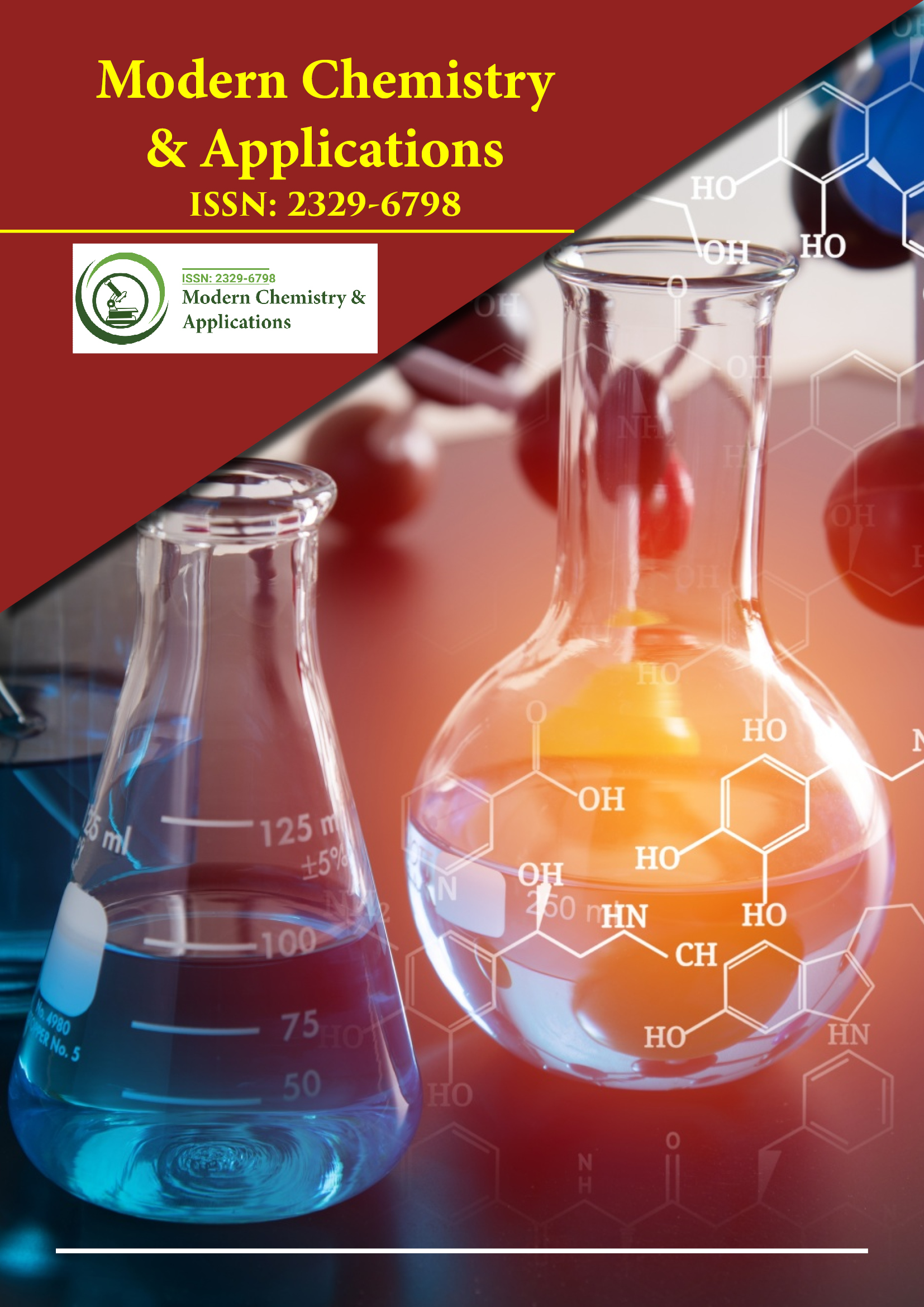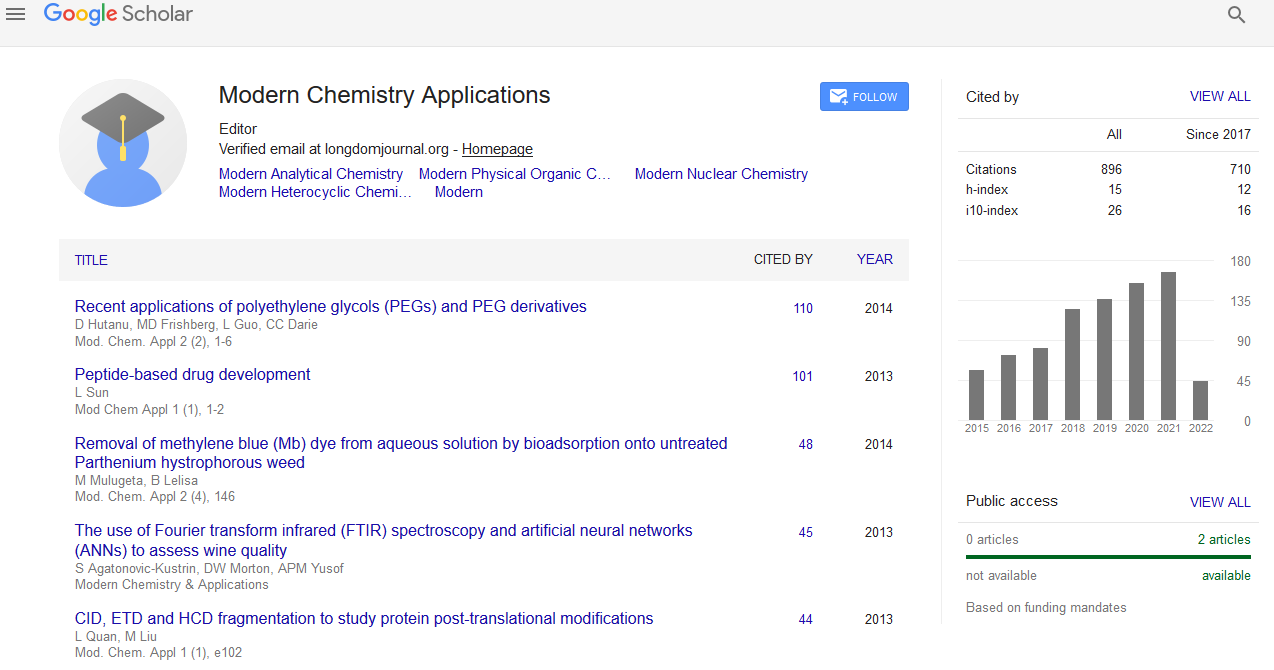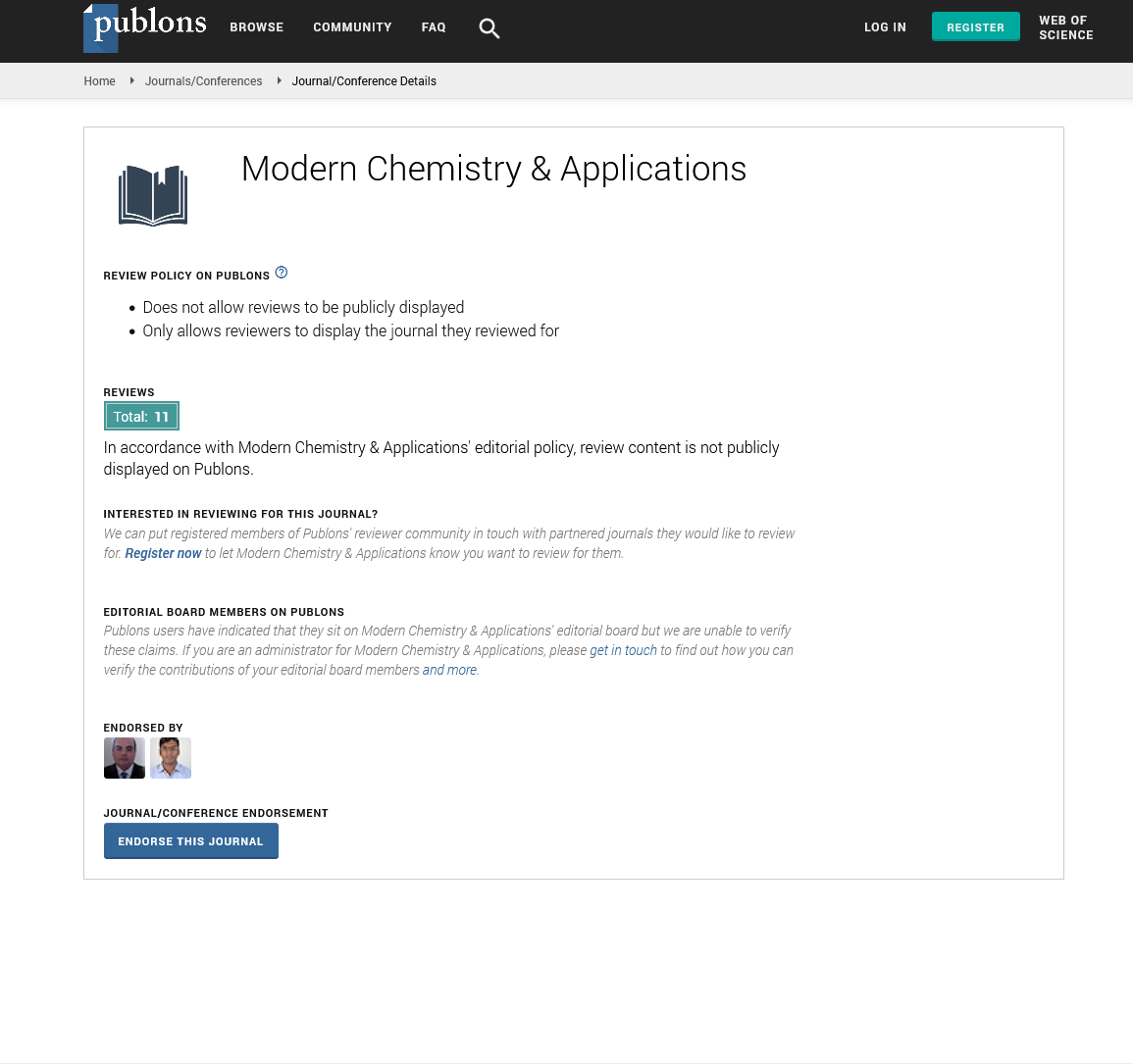Indexed In
- Open J Gate
- JournalTOCs
- RefSeek
- Hamdard University
- EBSCO A-Z
- OCLC- WorldCat
- Scholarsteer
- Publons
- Geneva Foundation for Medical Education and Research
- Google Scholar
Useful Links
Share This Page
Journal Flyer

Open Access Journals
- Agri and Aquaculture
- Biochemistry
- Bioinformatics & Systems Biology
- Business & Management
- Chemistry
- Clinical Sciences
- Engineering
- Food & Nutrition
- General Science
- Genetics & Molecular Biology
- Immunology & Microbiology
- Medical Sciences
- Neuroscience & Psychology
- Nursing & Health Care
- Pharmaceutical Sciences
Catalytic behavior of Cr(III) Schiff base complex intercalated layered double hydroxide for selective oxidation of ethylbenzene to acetophenone
Joint Event on 19th International Conference on Medicinal Chemistry & Multi Targeted Drug Delivery & International Conference on Catalysis and Pyrolysis
November 05-06, 2018 | San Francisco, USA
Savita Khare
Devi Ahilya University, India
Scientific Tracks Abstracts: Mod Chem Appl
Abstract:
A new heterogeneous catalyst, Cr(III) Schiff base containing layered double hydroxide was synthesized by intercalation method. The Cr(III) Schiff base complex derived from 2-hydroxy-1-naphthaldehyde and 4-aminobenzoic acid [NAPABA-Cr(III)], which was intercalated into layered double hydroxide, abbreviated as LDH-[NAPABA-Cr(II)]. The synthesized materials were characterized by ICP-AES, Energy dispersive X-ray analysis, Scanning electron microscopy, X-ray diffraction, BET surface area, Fourier transform infrared spectroscopy, Thermo-gravimetric analysis, Diffuse reflectance UV-Vis spectroscopy and Electron paramagnetic resonance spectroscopy. Its catalytic activity was tested for the oxidation of ethylbenzene with tert-butyl hydroperoxide (TBHP) as an oxidant under solvent-free conditions. In oxidation reaction, ethylbenzene was oxidized to acetophenone and benzaldehyde. A maximum 90.74% conversion of ethylbenzene with 99.93% selectivity of acetophenone was observed under optimized reaction conditions. Acetophenone was the major product and can be isolated from the reaction mixture with 92% purity. The catalyst was recycled ten cycles without significant loss of catalytic activity. Leaching studies performed by hot filtration experiments show that the chromium catalysts were heterogeneous in nature and stable under the reaction conditions. The probable mechanism of the reaction was studied by using BHT as a scavenger.
Biography :
Savita Khare is a Professor of Organic Chemistry in School of Chemical Sciences, Devi Ahilya University, Indore (MP), India. Her research interests include synthesis of supported and non-supported catalysts of transition metal complexes, mechanistic studies of reactions, viz. epoxidation, hydroxylation, oxidation, catalyzed by heterogeneous transition metal and homogeneous complexes, development of new reagents for the oxidation of a variety of organic molecules.
E-mail: kharesavita@rediffmail.com


